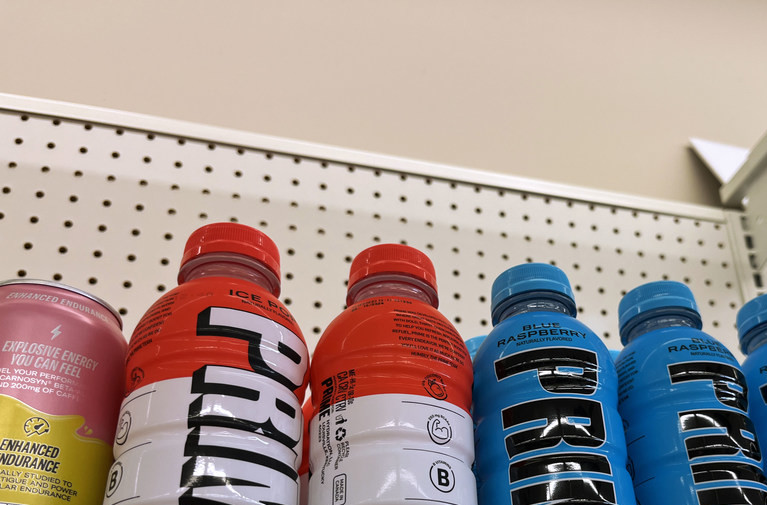Prime Hydration Faces Court Order to Reveal ‘Dark Spots’ Evidence in Supplier Lawsuit
A federal judge has compelled Prime Hydration to hand over critical documents about mysterious “dark spots” in its popular sports drink. This ruling in a heated breach of contract case could expose quality control lapses at the celebrity-backed brand.
YouTube stars Logan Paul and KSI’s Prime Hydration now scrambles to comply, as the order demands details on customer complaints and production issues tied to the defects.
Court Compels Discovery in Agrovana vs. Prime Hydration Breach Suit
The U.S. District Court in Massachusetts issued the order on September 5, 2025, in Agrovana Fruits & Vegetables LLC v. Congo Brands LLC et al. Agrovana, a supplier of coconut water powders, accuses Prime Hydration and its parent company, Congo Brands, of failing to pay for delivered ingredients despite a binding contract.
Agrovana’s motion to compel highlighted Prime’s inadequate document search. The judge agreed, requiring turnover of leadership messages, sales data, emails, shipping records, and crucially, customer complaints—including those about “dark spots” appearing in the product.
These dark spots refer to visible discoloration or contamination in Prime Hydration bottles, potentially linked to the coconut water powders Agrovana provided. The suit claims Prime breached the agreement by not honoring minimum purchase orders after initial hype faded.
Background: From Viral Sensation to Legal Scrutiny
Launched in 2022, Prime Hydration exploded in popularity, racking up over $250 million in first-year sales through savvy social media marketing and athlete endorsements like Patrick Mahomes and Aaron Judge. The electrolyte-packed drink targeted health-conscious consumers and young athletes, positioning itself as a “better-for-you” alternative to sugary sodas.
But success bred challenges. Sales plummeted over 90% in key markets by mid-2025, leading to contract disputes with suppliers like Agrovana and bottler Refresco Beverages, who sued for $68 million over unmet orders. Prime’s legal woes also include class actions over PFAS “forever chemicals” in its grape flavor and misleading caffeine claims in energy variants.
The “dark spots” issue emerged amid these pressures, with Agrovana alleging Prime withheld evidence of product flaws to dodge payments. Independent tests haven’t confirmed the spots’ cause, but they fuel claims of manufacturing shortcuts.
What Are the ‘Dark Spots’ and Why Do They Matter?
Reports describe the spots as irregular black or brown flecks in the liquid, visible after shaking bottles. Customers complained on social media and retailer sites, prompting returns and refunds.
Agrovana argues these defects stemmed from their powders but were exacerbated by Prime’s handling or formulation. The court order mandates disclosure within 30 days, potentially revealing internal tests, quality assurance logs, and consumer feedback data.
Expert Insights and Public Backlash
Legal experts view the ruling as a win for transparency in supply chain disputes. “This compels Prime to show their cards on product integrity,” said beverage litigation attorney Maria Gonzalez, who isn’t involved in the case. “Hiding complaints could escalate to fraud allegations.”
Public reactions split along fan lines. On X (formerly Twitter), supporters of Paul and KSI dismiss it as “hater drama,” while critics amplify health concerns, linking it to prior PFAS suits. One viral thread called the spots “a red flag for contamination,” garnering thousands of likes. Nutritionists warn that visible defects in drinks raise broader safety questions, urging recalls if impurities persist.
Prime co-founder Logan Paul addressed similar scrutiny in a 2024 TikTok, denying intentional issues and blaming packaging for trace chemicals. The company has yet to comment on the latest order.
Ripple Effects on U.S. Consumers, Economy, and Influencer Brands
For American families, this hits home—Prime targets kids and teens, with parents stocking fridges for school sports and after-school boosts. If dark spots signal quality dips, it erodes trust in “healthy” hydration options, possibly hiking prices as suppliers demand guarantees.
Economically, the beverage sector feels the pinch. Prime’s sales crash already cost jobs at bottlers like Refresco, who invested millions in custom lines. A full reveal of evidence could trigger recalls, class actions, or FDA probes, mirroring scrutiny on energy drinks’ caffeine levels.
In the influencer economy, it spotlights risks of celebrity ventures. Paul and KSI’s empire, built on hype, now battles lawsuits that could tarnish endorsements and future deals. Politically, it fuels calls for stricter labeling on functional beverages, blending consumer protection with youth marketing regs.
Sports fans see parallels too—athletes like Tyreek Hill promote Prime, but product flaws might sideline sponsorships if health risks emerge.
Conclusion: A Turning Point for Prime’s Legacy
The court’s order to disclose “dark spots” evidence marks a pivotal moment in Prime Hydration’s turbulent journey from viral hit to litigation magnet. As documents surface, they could vindicate Agrovana or expose deeper issues at Congo Brands.
Looking forward, Prime must innovate beyond gimmicks—perhaps with rigorous quality audits and transparent sourcing—to rebuild consumer faith. For U.S. drinkers, this saga underscores the need to scrutinize labels and report defects, ensuring accountability in the $100 billion sports drink market.
